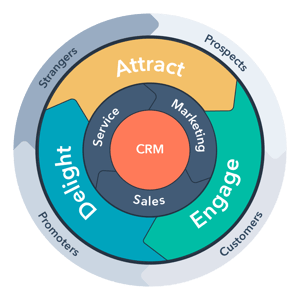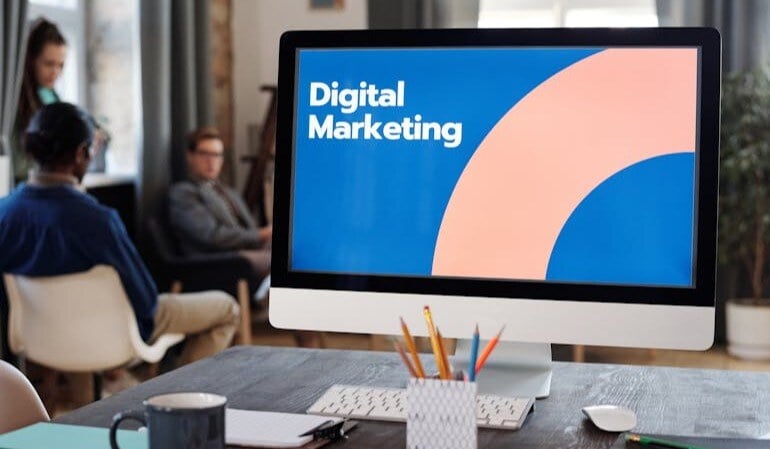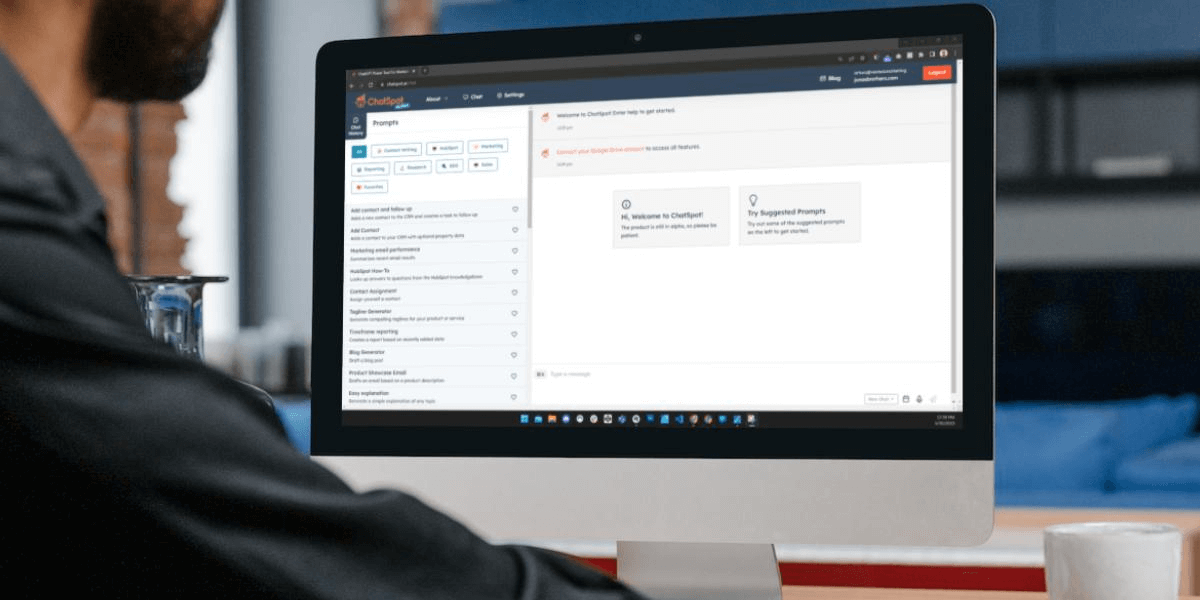Building a Scalable Inbound Marketing Strategy for 2025
In 2025, a scalable inbound marketing strategy is essential for businesses looking to grow efficiently and sustainably. Companies must focus on...

cusFor businesses and marketing professionals, the field of marketing has changed drastically in recent years and continues to evolve at a rapid pace, meaning that marketers need to grow and change their approach as well.
Experienced marketers are familiar with these constant changes, as part of being a marketer is moving with your audience and adapting to new patterns, trends, and events that affect the industries they represent, but as a new business owner or someone stepping into a marketing role for the first time, this might feel a bit intimidating.
The reality is that these evolving characteristics present an opportunity to be creative, innovate, and get to know your target audience on a whole new level, no matter how much experience you may have. That's where inbound marketing comes into play.
Simply put, inbound marketing flips traditional marketing upside down. Instead of pushing out banner ads, cold calls, and unsolicited emails, inbound marketing uses a more strategic and targeted approach by getting to know your target audience first, then generating content curated specifically for your them.
What makes inbound marketing different from traditional forms of marketing is that it's content is not 'sales-y' or intended to rush potential customers through the sales funnel. Inbound Marketing delivers educational and/or entertaining content that your audience finds relevant and solves their problems or shows them how you can solve their problems for them.
Another differentiating aspect of inbound marketing is how it builds relationships with your potential and current customers, creating rapport and ultimately transforming your customers into your advocates who happily champion your brand.
Think of traditional (or outbound) marketing as using a megaphone to push out messages to your audience, while inbound marketing is more of a magnet that attracts and draws your audience to you.
Depending on the situation, it certainly could, because a large part of inbound marketing involves providing relevant content full of value to your audience
The thing is, you have to think long term here. If you're writing blogs, ebooks, or other content that solves a problem for your audience, they may be likely to share that content with other people who are experiencing the same issues, organically performing the most powerful form of marketing- word of mouth.
Another thing to consider is this: if you've solved a problem for a potential customer through your free content, you've probably established that you are a trustworthy and knowledgeable source for them. When the time comes for that potential customer to purchase products or services they need, your brand will be at the front of their mind.
Well, yes, but it goes a little deeper than that. Sure, content marketing involves generating content that relates to your audience and attracts them to your brand or website which provides value and establishes trust, but this is one of the many parts involved in an inbound marketing strategy.
Content marketing provides a reason to work with your brand (trust and authority), but inbound marketing helps your brand's content be found in the first place and continues to nurture the relationship, reinforce positive and valuable communication, and precisely track what's working and not (and why).
Therefore, inbound marketing utilizes content marketing in a bigger strategy that synthesizes other forms of marketing into one holistic approach.

The B2B buying process has changed since technological advances have made it much easier for consumers to do their own research, and marketing strategies and methods have to pivot to accommodate these changes.
In today's world, it's not uncommon for consumers to Google businesses and products they're interested in and find customer reviews, product/service comparisons, video demonstrations and reviews, and blog articles from influencers or industry leaders. All this information is readily available and accessible with one search!
A well-rounded inbound marketing strategy works within this open-information environment and leverages the fact that consumers will do their own research to move potential buyers through the different buying stages.
What are the different buying stages, you ask? Well, think of it as a flywheel. As your marketing strategy gains traction and your customers become your advocates, you'll notice the flywheel spins faster and faster. The flywheel is divided into three sections:
The first stage is to attract potential buyers through keyword research, content marketing, social media, and SEO. These tools work to build awareness around your brand and it's offerings.
So, first you'll probably find what specific keywords related to your brand's offerings that people are actually searching for to find a solution to their problem. Then, you can target those keywords (using SEO tactics) to rank your content so that these potential buyers find your blog, landing page, eBook, etc.
Next, you want to engage your potential customers by providing this content to be free of charge, building trust and rapport with them, so your brand is at the front of their minds when the buying decision comes around.
Oftentimes, a great strategy involves providing an eBook, catalog, or other downloadable content after the prospective buyer provides their email, name, or other contact details, so you can build your contact database and use this data to create 'buyer personas' or groups of potential buyers who share similar characteristics (so you can curate content specifically for them).
The final stage of the flywheel is to continue delighting your customers and potential customers with valuable content. Perhaps they've made purchases from you or are on the cusp of doing so, and you've probably collected some contact information from them at this point, so you'll be able to send them fresh content as it comes out.
In addition to maintaining a trustworthy relationship with your potential buyers, this is also an opportunity to get feedback from them about their experience with your brand and learn about ways you can improve or provide solutions to other problems they may be having.
Using an inbound marketing strategy carries many benefits with it. Obviously, it gives your brand a way to stand out in a world where consumers are bombarded with ads and persuasive messages all day long which usually translates into greater revenue and business growth, but there are other benefits, as well.
Inbound Marketing helps you to get specific when defining and targeting keywords, so you'll be improving your position on search engine results pages (SERPs). This leads to becoming a trustworthy authority in your industry, another benefit of inbound marketing.
Another benefit of inbound marketing is getting to know your customers and potential customers on a much deeper level than ever before. By collecting data throughout all of your inbound marketing processes, you'll find insights that inform you on your potential customers' pain points, desires, and expectations (and you can generate content around this).
As time moves on, and you create more content, you'll be optimizing your sales process by having a bank of resources from which you can send your potential customers (or provide online via your website) which educates prospective customers and promotes your brand. In today's world, it's not uncommon for consumers to Google businesses and products they're interested in and find customer reviews, product/service comparisons, video demonstrations and reviews, or even evaluate how a company uses a customer service platform to improve their client experience.”
If you're looking to get even deeper into inbound marketing strategies and how to leverage them for your own business, we're here to help!
We effectively promote and grow companies in a wide variety of industries, including the manufacturing, medical, engineering, aircraft and FBO services and oil and gas fields.
Our team is ready to assist you in generating leads, revenue, and creating a brand that dominates your industry! We can take you through the whole process, from building a strategy to executing it and analyzing the results, so you can maximize your marketing efforts.
Click below to reach out and connect with us, let's see what we can do together!

In 2025, a scalable inbound marketing strategy is essential for businesses looking to grow efficiently and sustainably. Companies must focus on...

Looking to bring in better leads, boost traffic, and actually turn visitors into customers? You don’t just need content, you need a strategy (and a...

In the rapidly evolving digital ecosystem, Artificial Intelligence (AI) is revolutionizing inbound and digital marketing. This blog delves into how...